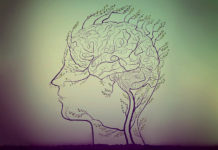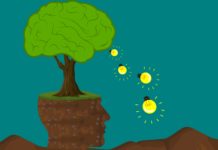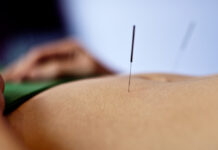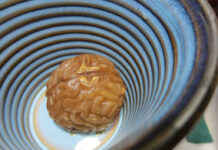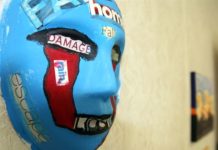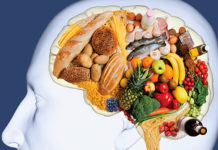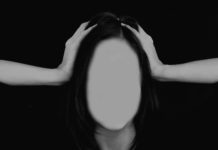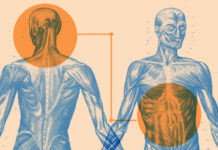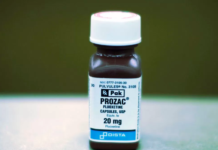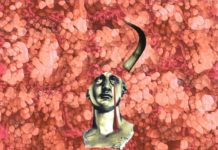Healing From Schizophrenia
My experience is that living in a psychosis forces your brain to "stretch" — you develop extra capacity to handle things. I was pretty much living a normal life, even working some of the time, while having all of my psychotic problems. After the psychoses faded away, I no longer needed to fight monsters, but I still had that extra capacity left. After 11 periods of psychosis, my brain has never worked as well as it does now.
New Data on the Adverse Effects of Meditation and Mindfulness
Study reports on the less-examined findings of difficult and painful meditation-related experiences.
Initial Trial of Ayahuasca for Depression Shows Promising Results
Ayahuasca found to be effective in treating moderate to severe depression in low-income population.
Psychiatry in Need of “Fundamental Rethinking”
Prominent researchers in psychiatry urge the field to move away from a rigid biological focus toward social and psychological perspectives to meet the needs of today’s world.
Using Mindfulness Meditation to Cope with Suicidal Thoughts and Feelings
Suicidal torment is magnified by the loss of hope. People in life-or-death survival conditions, such as being lost in the wilderness or being held prisoner of war, will dream and plan for the future in order to make their present conditions tolerable. The critically ill heart patient expresses his faith in his upcoming surgery by making a date to play golf six weeks after the operation. But the depressed person sees no viable future. There is nothing to look forward to, no dreams to fulfill, only the never-ending hell of the eternal present.
New Data Supports Acupuncture as a Treatment for Depression
Researchers found acupuncture effective in the treatment of chronic pain and depression
Everything Matters: a Memoir From Before, During and After Psychiatric Drugs
Psych meds can not only put weight on regardless of how you otherwise care for yourself, they also tend to make people feel gravely lethargic and vaguely sick all the time. I could not exercise as I had before. Could not. It doesn't matter how much mental health professionals try to tell us that if we just exercised we'd be okay in the face of neurotoxic drugs that cause weight gain, because the fact is the drugs impede that capacity. This is not widely appreciated or understood and people on psych meds are again traumatized and made to feel guilty for something that is truly outside of their control as long as they are taking these medications.
Brain Scans Cannot Differentiate Between Mental Health Conditions
A new study analyzing over 21,000 participants found that differences in activation of brain regions in different psychological “disorders” may have been overestimated, and confirms that there is still no brain scan capable of diagnosing a mental health concern.
Trauma Resiliency Model: A New Somatic Therapy for Treating Trauma
Report presents new body-based therapeutic approach for shock and complex developmental trauma.
Long-term Usage of ADHD Drugs Linked to Growth Suppression
Findings suggest that treatment not only fails to reduce the severity of “ADHD” symptoms in adulthood but is associated with decreased height.
Growing Research Connects Nutrition and Mental Health
A new article reviews studies in the field of nutritional psychiatry and how nutrition can prevent and treat mental health issues.
Brain Disease or Existential Crisis?
As the schizophrenia/psychosis recovery research continues to emerge, we discover increasing evidence that psychosis is not caused by a disease of the brain, but...
Snapshots of Spring: Journeying Off Psych Meds After 20 Years of Compliance
My prayer to be taken out of my misery was answered, just not the way I used to envision. I managed to escape the system and here I am in the same lifetime, alive and well. I’m slowly getting acquainted with this new setup and am eternally grateful for yet another opportunity at life, which I hope does not slip through my fingers.
Mindfulness and Complex Trauma: The Rewards and the Risks
What media hype and those selling mindfulness don’t tell you is that mindfulness is a process that can radically transform you, and it’s not always safe, nor is it easy or straightforward. We make it safer by being aware of the risks and learning to listen to our own bodies about when it is or isn’t okay for us. No one else actually knows.
Can Psychosis be Treated With Nutrition?
We are immersed these days in the erroneous idea that only randomized placebo-controlled studies (RCTs) constitute scientific data. We will discuss the origins of the over-reliance on RCTs in a future column. For now, we shall simply assume that many of our readers understand that a well-documented case study can provide information relevant to many. And so, we would like to tell you about a Calgary-based child who we refer to as ‘Andrew’.
Combining Art Therapy and Mindfulness for Refugees
A new article, published in The Arts in Psychotherapy, describes the ways art therapy and mindfulness have benefitted refugees and asylum seekers in Hong Kong.
Philosophers Challenge Psychiatry and its Search for Mechanisms of Disorder
Attempting to locate the mechanisms of psychiatric disorder is a step in the wrong direction and fails to challenge potentially unjust social practices.
New Evidence for Brain-Gut Link in Depression and Quality of Life
The first ever population-level study of the brain-gut connection in humans finds evidence for a link between gut bacteria and mental health.
Treating Metabolic Conditions May Resolve Some Depressive Symptoms
New research suggests that treatable metabolic abnormalities underlie some treatment-resistant cases of depression—and treating the metabolic condition has the possibility of dramatically reducing depressive symptoms
A Biopsychosocial Model Beyond the Mind-Body Split
Can a renewed biopsychosocial approach, grounded in an updated philosophy, foster person-centered medicine, and psychiatry?
Traditional Healing and Psychosis vs. the Promises of Modern Science
As noted in Anatomy of an Epidemic, the prognosis for someone experiencing psychosis is far better in developing countries than in industrialized countries. Robert Whitaker and others posit that this is due to the treatment models used in the developing world, as well as to debility and chronicity caused by psychiatric drugs themselves. I think it's also important to explore traditional tribal and village based models of helping people experiencing psychosis and examine why they may be effective. Do these traditional societies know something we don't?
Expert Urges Doctors to Stop Prescribing Seroquel for Insomnia
From National Post: Many physicians are prescribing a low dose of Seroquel, an atypical antipsychotic, to patients with insomnia. Experts warn that even a low...
We Still Buy the Lie That Chemical Imbalances Cause Depression
From Quartz: Despite its inaccuracy, the chemical imbalance theory of mental illness continues to persist in public consciousness. The prevalence of this myth may be...
The Answers in the Attic: A Mother-Daughter Story of Overmedication and Recovery
In 1959, my mother suffered what people referred to as a nervous breakdown after my sister’s birth. I puzzled over why Mom never recovered, until I found Dad’s collection of medical records in my sister’s attic. How could anyone give a nursing mother with three small children so many drugs in such a short period of time?
A Blueprint for an ‘Ecosocial’ Person-Centered Psychiatry
New article pushes for a shift from a psychiatry centered on brain circuitry toward an 'ecosocial' view of mind, brain, and culture.

